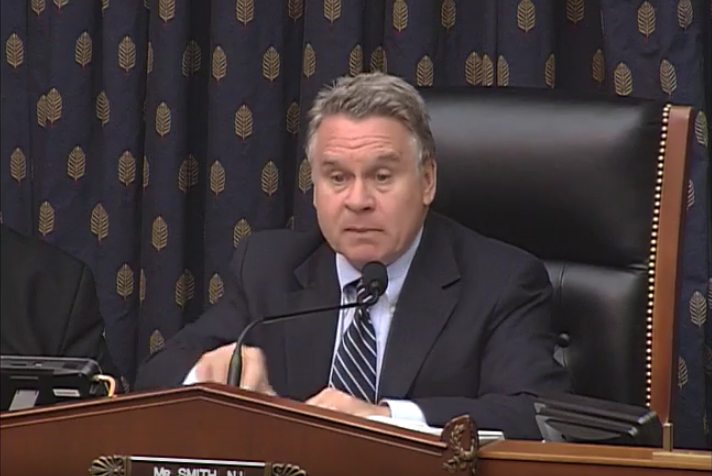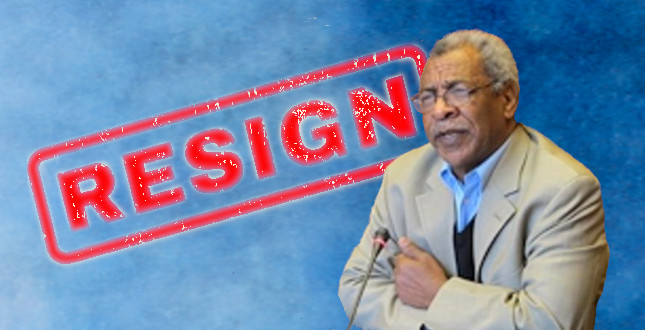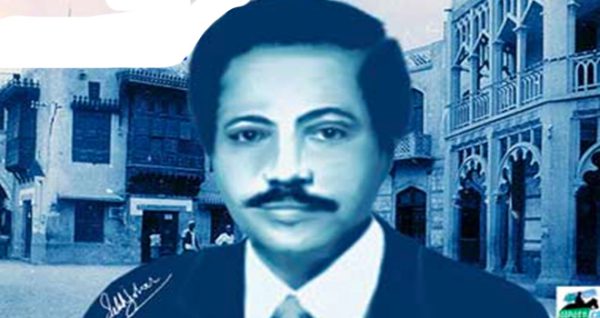A Conference Of The Willing!
Unless those who have opted to dissent change course on short notice and rejoin the collective effort, the convening of the National Conference for Democratic Change (NCDC) in late July of this year appears to have become the business of the willing only. With the exception of one out of eleven member organizations, the EDA and most of the active civic society groups underscored their determination to hold the conference as planned. The forces that need the change most, and ordinary citizens who have been consistently demanding the holding of the conference, including non-Eritrean friends who are also interested too see better situation in Eritrea, are all strongly behind the efforts to convene the conference. Thus, after dispiriting ups and downs in the past seven to eight years, the national conference has been effectively set on course, and with the launching of the Preparatory Committee that has begun its work in earnest, and to stress the point, on can say that the Rubicon has now been cross.
The rationale for the public’s insistence on the national conference is not so difficult to comprehend. Any concerned Eritrean today knows what is at stake at the present is the very survival of the Eritrean politico-demographic viability of the nation, which has been clearly under serious strain due to the ruinous policies of the regime. Any thought about other things would be at the expense of the nation’s chance to survive, and cannot be other than personal aggrandizements in whatever emotionally loaded concerns they might be veiled.
In essence, the national conference is set to become modest starting episode in long process of a national project to find antidotes to the chauvinist and sectarian venom the regime has methodically been spreading in the society. This is expected to happen through declaration of true commitment or re-commitment to an updated national Charter inclusive enough to allay the concerns of all stakeholders in free and democratic post dictatorship Eritrea, besides plotting meaningful action plan to remove the regime as well as crafting safeguards for smooth transition to a system of governance under which all Eritreans would voluntarily settle down to live and prosper. Neither is the NCDC expected to hammer deals between religions or nationalities in the way some might insinuate, nor would it be a venue at which all the ills and wounds in our society would be cured. Indeed, the conference would be termed a success if it could establish beyond reasonable doubt that change in Eritrea would be real far from being a cosmetic venture of changing guards under whatever pretext it might be. The current state of affairs in the country will have to be unambiguously declared unjust and, therefore, untenable, and that the naked imbalances, which the dictatorship has been creating on all levels of the national life, shall have to be subject to correction. In this endeavour, the onus is on the political elite that should assume sense of enlightened leadership and fulfil historical mission by coming out to engage in true, bold and frank dialogue at the conference. Obviously, any change that sets in motion transformation of societies would not happen unless patriotic and enlightened segments in them engage in the socio-political processes; and our case cannot be an exception.
It is often complained that many among the Eritrean elite have not been helpful in the past to the cause of their people in critical times. Now, an opportunity to make up for past mistakes or indifferences seems to has come their way if they would grab it and play their appropriate role in the national conference regardless of their political or social affiliations. In fact, they are being confronted once more by the call of a nation in great distress. Would they let it come and go?
Moreover, those of us who preach high sounding principles in the context of party platforms and political programs do have real stake in promoting and actively taking part in the national conference because we can render it an important bridge towards early removal of the regime, and provide ourselves the conditions we need for advocating our ideals among the society. Otherwise what purpose do principles on paper serve unless translated to benefit the people? Thus, any move to hinder or to delay the conference would suggest fidelity to other priorities that, under the current concrete conditions, cannot by any means be compatible with the collective interest our nation.
Moreover, those who claim to raise the banner of democracy should prove their worth by listening to the demands of our people. It has been clear that the call for a broadly inclusive national conference for dialogue under the auspices of Eritrean opposition alliance forces has been continuing unabated in the past several years. Many articles have been posted to the opposition Internet web sites as well as pal talk chat rooms hosted from time to time guests to discuss the issue. Even ordinary Eritreans, desperate to see quick end to the tragic conditions ravaging their country, have not been missing opportunities to enquire about what has been keeping the national conference on hold in their casual conversations at social or private encounters. EDA delegations have been grilled by questions at public meetings and in encounters with media outlets. This has at least been going on since 2003 after the participants at the 18th Eritrea Festival of the then ELF-NC in Kassel, Germany, mandated the sponsorship and organization of the conference to the forerunner of the current EDA, the Eritrean National Alliance.
Of course since early on there have been detractors and doubters. The current controversy regarding the NCDC and the Preparatory Committee is not difficult to be trace back to the days of the Kassel Manifesto in August 2003 though it is now shrouded under procedural issues or claims of intra-EDA mutual mistrusts. Among other things, the scepticism of some organizations involved rejection of any role for civic society groups in the opposition versus regime equation.
But in 2005 at the annual meeting of the ENA in Khartoum, Sudan, the idea of holding a national conference abroad was one of the items on which views diverged. However, a deal was eventually hammered to demote the conference into one that concerned the opposition forces only rather than reflecting a broader national status, and acquired the reference name of “national conference for democratic change”. In retrospect, one tends to read in the current dispute about the Preparatory Committee that the understanding of 2005 was tactical. Settling the scores about who leads the EDA before the convocation of the national conference appeared to have been postponed in anticipation of improved bargaining positions. Hope might have been pinned on probable unity of the organizations that were coordinating their efforts inside the EDA at the time. The so-called blocs of 2007 were premature alignment of forces. Down the road, with a third group joining very late in their unity process, two members of the so called bloc one ended up in becoming the current EPDP which has pulled from joining hands in the preparation of the conference.
Despite discords in the EDA, however, public pressure for holding the conference did not stop. Voices often turned grievous and louder whenever the conscience of Eritreans stretched to the extreme due to outrages the regime has been committing. Public mood became deeply distraught by news about loss of young Eritrean lives, including at times infants in the bosoms of their mothers, in stormy seas and in inclement desert conditions. Wanton killings of young Eritreans by border police in countries like Egypt and sufferings and de-humanizing outrages in rotten detention centres in Libya added to the distress of the public. With no others alternatives to resort to, thus, the public has been pouring frustration on the EDA and its member organizations for lack of movement in the direction of convening the national conference, which they believed could bring some kind of order to the camp of the opposition and enable the actors in it to create better conditions to coordinate their efforts and rally the general public against the regime. The accord to hold the conference at last, and the launching of the Preparatory Committee have restored hope and the mood shifted to positive trend – reason for the popular support the Preparatory Committee is enjoying.
Needlessly, to the families and communities surviving day to day under enormous pressure, the priority is salvation first and everything else next. Up to the point of the formation of the NCDC Preparatory Committee the people have been helplessly waiting for any glimmer of hope on the horizon suggesting concerted action by the opposition forces against the regime, while at the same time watching their nation ruining before their own eyes through dispossession of its youth and erosion of the social and political fabrics that bind together their communities. They have been seeing the latter adding in complexity through outward pull of the potent centrifugal forces that have been translating in succession to the political and military formations.
The developments just mentioned suggest effective demolition of the one-people-one-heart the propaganda machine of the regime along with the elitist spin doctors who have been out to sell the classical individual-to-state affiliation model before first establishing community-to-state relations that connect components of diverse societies to the states to provide for peaceful coexistence in stable conditions which are crucial requisites for consummation of nation building processes on the basis of mutually beneficial social, economic and institutional transformations. It has been in such contexts that in Eritrea’s condition, too, there have always been consistent demand for competent organization and leadership capable of setting our socio-demographic diversity on the path towards connecting to their postcolonial nation-state, which still is in its rudimentary state of formation.
The root cause of the disastrous failure of the dictator’s project in our country is the attempt to grind the individuals under the weigh of the state by dispersing their communities to mere statistics of individuals dispossessed of inherited personality, their material livelihood and social identities that are deep-rooted in their land. In other words, in the mindset of our communities, inter-communal borderlines have not yet given way to supremacy of the external borders that international laws and norms sanctioned. Hence, no identity and prerogatives of one constituent part would be accepted to be superimposed on the rest or part of them before proper norms and principles governing coexistence have been put in place consensually as prelude to an historical epoch in which the current physical and psychological divides would melt down while the uniqueness and peculiarities of the components remain preserved in the embrace of national identity in which our diversity shall be celebrated rather than feared. Only then shall the components of our society look inward to the centre rather than outward across our international frontiers. The NCDC shall have to make a realistic start in reinforcing such awareness written into a manifesto of intentions, which an updated charter should enshrine. To reach this level of bringing us to such level of attainment, therefore, we need to endorse dialogue anchored on fairness, equality and justice as mandatory norm for resolving conflicts of whatever nature.
Hence, to underscore the crucial place of dialogue in Eritrea’s political life of our nation, an extended digression to trace how it fared in the past might not become too boring. Right after the Italians left, Eritreans had faced the challenge of putting in place the fundamentals of national unity to guarantee the permanency of their postcolonial polity in which their diverse communities could coexist in peace and security. Since then the patriots never missed the fact that dialogue shall have to remain a torch that should never fall from their hands. It was within that mindset, thus, that the concern for dialogue has been real as indispensable tool for reaching consensus on contentious national matters. This thinking emanated from awareness of the fluidity of the internal fault lines along which the diverse socio-cultural and demographic components inside the borders of their entity were patched together by force of arms and not through undisturbed historical process.
The call for national dialogue often assumed urgency in times of adversity. This involved external challenges as well as internal tensions whenever latent social or political tensions of one kind or another menaced to ignite fire as the result of tremors set in motion by dynamics of self-assertion of one or the other of our communities. To stem those dangers off, thus, conscious Eritreans wanted to retort to dialogue all the time to some form of national forums like congresses. Admittedly, their endeavours had not always delivered. This was what the fiasco at Bet Giorgis in 1946 attested, though the Cinema Impero meeting four years later can be recorded as a positive mark. After the first elected Eritrean Parliament was coerced to declare itself defunct in 1962, however, there have not been forums of dialogue that could be labelled national except perhaps one.
The ELF congress of 1971 could arguably qualify as a national forum since it had tabled and debated a set of national agenda related to the post annexation fate of the nation, and because it came out with a national liberation program spelling out political and military strategies for the liberation of the nation. The conditions existing then could warrant the characterization just mentioned due to relatively wide representation of fighters, village councils from as far as Dankalia, students, workers and women. Moreover, the ELF at that time was a major bearer of the national banner in the field on behalf of the Eritrean people establishing the political and legal continuity of the unilaterally abrogated and internationally sanctioned autonomous status of the Eritrean polity.
Now then, the NCDC is going to open as planned on July 30 this year. It will be happening more than six and nearly four decades after the meeting at Beit-Georgis and the first ELF congress, respectively. The former could not give us a precedent to emulate since it was disrupted before it even began. But the latter produced a national democratic program, which many organizations have later used as source of inspiration. The dissidents of that time did not say they were declaring war on the ELF due to unacceptability of the essence and content of the program it had adopted in 1971. The driving motives of the tag of war and bloodshed involved in the main the bad-guys-good-guys polarities rather than anything else. In a word, the struggle concerned who should lead, which remains to haunt the political and social life to date. In the judgement of late comers the refusal of the dissidents to attend the congress in 1971 was mistake because since they failed to have their grievances addressed at that congress, saved the national cause from multifaceted damages.
At the present, too, the call for a national forum has much to do with our people’s cause. It cannot be gainsaid that the predicament facing our people now is more serious than that in the late sixties and later. At that time, time was of essence, while the challenge facing us this time concerns saving a nation on the verge of collapse, which justifies subordination of any other interest to national effort of getting rid of the dictatorship. In these circumstances, thus, is investing in the success of the NCDC too high price to pay?
To this writer, the gist of the current dispute about the NCDC is the syndrome called the fear of the other; this has been polluting our political climate for generations. But the best place to clear the pollutants is forums of dialogue. This is what the upcoming national conference is anticipated to offer. Common sense and concern for collective future dictate that mistrusts and fears have better chance of being sorted out through collective efforts at forums. Definitely, no purpose would be served by disembarking from a ship that could bring us all to safe destination of common future. The victims of discord and dissension at this point in time shall be the young, and those who shall follow after them, because due to lack of leadership they will be denied of inheriting a nation for whose liberation their fathers and mothers had dearly paid.
The NCDC forum is a good position from where to address the youth, and the people, by and large, with one loud voice. The other alternative will be the protagonists barricading in fortresses and talking to them as has been happening already. That was exactly what those who refused to come to the congress of 1971 did. And, the net result was loss lives, wastage of time and resources and at the end a ruthless dictatorship. Who would want to live and witness the repeat of those times?




Awate Forum